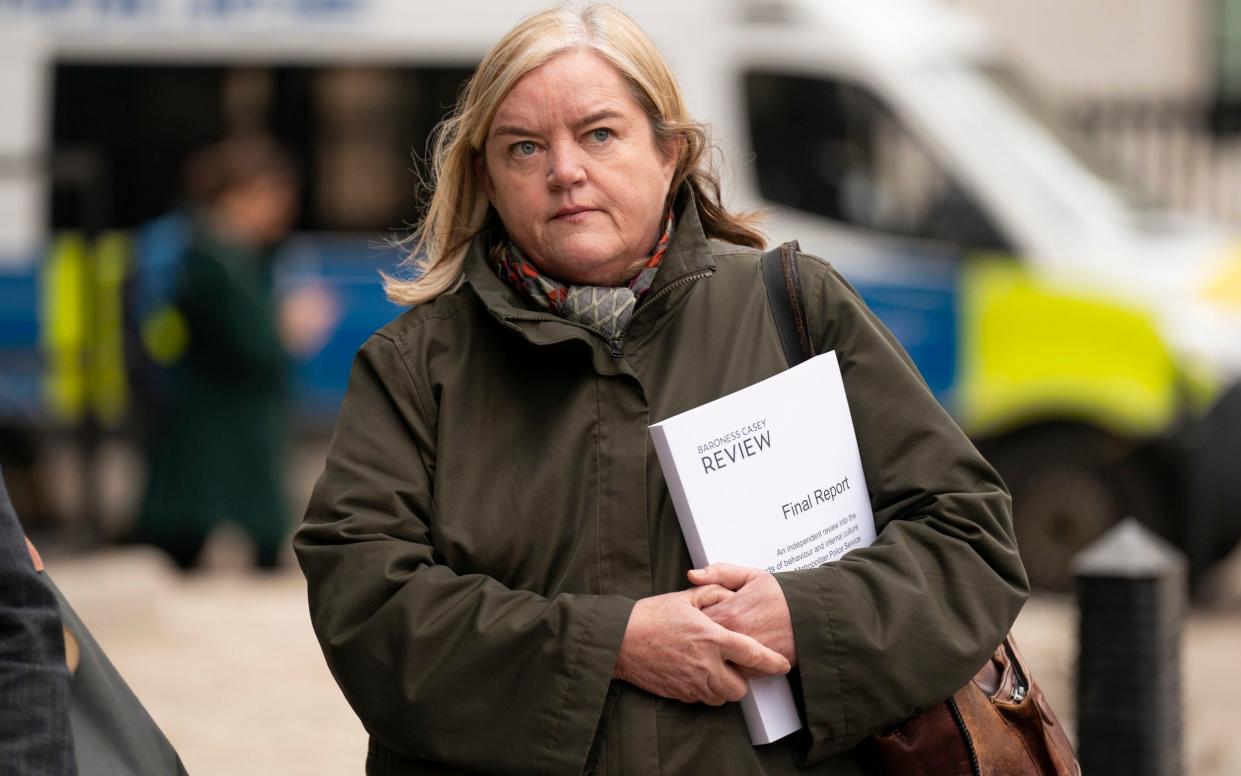Baroness Casey: the straight talking, no-nonsense, trouble shooter for all governments

Baroness Casey of Blackstock is regarded as a straight talking, no-nonsense, trouble shooter who is respected by governments across the political divide.
Appointed a crossbench peer in July 2020, she has worked for five different prime ministers, tackling a range of issues including homelessness, anti-social behaviour and extremism.
Brought up in Portsmouth of Irish heritage, she was educated at a local Catholic comprehensive school and studied history at Goldsmiths, University of London.
She began her working life in a DSS centre, which she credited as cementing her determination to help those at the margins of society.
Lady Casey began working for the homelessness charity Shelter and by the age of 27 had risen to become its deputy director.
In 1997, following the Labour landslide, Tony Blair appointed her the head of his rough sleeper’s unit and she was soon dubbed in the media as the ‘homelessness czar’.
Unafraid of controversy she was criticised by The Big Issue, the newspaper set up to help homeless people, after suggesting that well-meaning charities running soup kitchens and handing out sleeping bags were helping to keep people on the streets.
Anti-social behaviour
In 2003, she was appointed the head of the Government’s Anti-Social Behaviour Unit, working with troubled families in some of the country’s most deprived communities.
She was subsequently appointed as the head of Tony Blair’s Respect Task Force which saw her working closely with the police in tackling anti-social behaviour.
While working as a crime advisor for the Government, Lady Casey hit the headlines by stating that the justice system favoured the criminals rather than the victims.
In 2010, under David Cameron’s coalition government, she was appointed the country’s first Victims’ Commissioner, championing the rights of people affected by crime and abuse.
Following the nationwide riots in 2011, the prime minister appointed her director general of the Troubled Families Unit with the task of working with 120,000 of the country’s most challenging families.
In 2014, following the Rotherham child abuse scandal, she led a review into children’s services in the area.
The damning report that followed led the government to declare Rotherham Council “not fit for purpose” and saw the removal of the council’s responsibility for children’s services.
In 2015, she was commissioned to undertake a review into extremism which concluded that there were worrying levels of exclusion and segregation within some Muslim communities, especially in northern towns.
One of the recommendations in the report was that migrants should be taught about British values and should take an oath of integration.
During the pandemic, Lady Casey headed up the Covid 19 homelessness task force which was credited with getting 14,000 rough sleepers off the streets and into accommodation.
Saving many lives
The initiative was regarded as a huge success and was credited with saving many lives and helping stop the spread of coronavirus among some of the most vulnerable members of society.
Following the appalling scenes during the Euro 2020 football final at Wembley, when ticketless England fans stormed the stadium, Lady Casey carried out a review that slammed the lack of collective planning for the event and described it as a “day of shame” for England.
In the wake of the kidnap, rape and murder of Sarah Everard by serving Met officer, Wayne Couzens, Lady Casey was appointed by the former commissioner, Dame Cressida Dick, to carry out a review into culture and standards in the force.
She and her team spent 14 months interviewing police officers, victims and members of the public.
Her 363-page review is likely to go down as one of the watershed moments in British policing after concluding that the Metropolitan Police is institutionally racist, sexist and homophobic and has lost the trust and consent of the people it is supposed to protect.
Skilled at remaining politically neutral, she is proud of her reputation as an outsider and undeterred by upsetting people in positions in power.
She lives in North London and describes her pastimes as drinking wine and reading novels.

 Yahoo News
Yahoo News 
